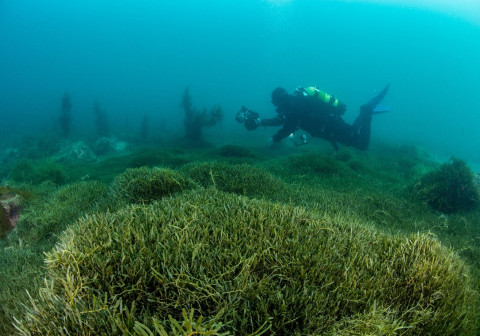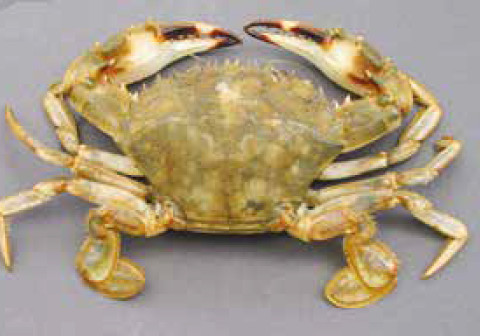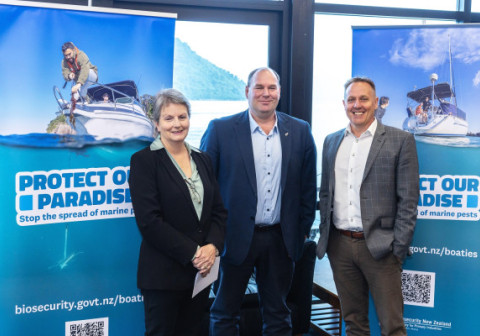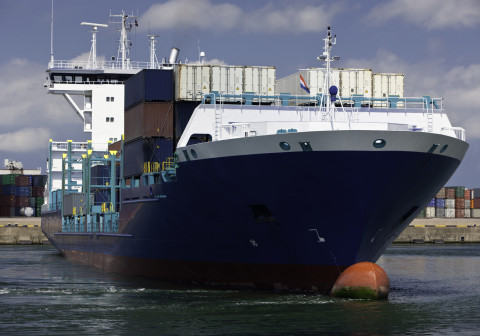
Our marine paradise
For many of us, the sea is our happy place. A day out with family or mates, getting some kai, or whatever gets us out in a boat – among waves and fresh air. That’s our marine paradise – but it's threatened by invasive marine pests.
Two ways pests and weeds can spread
Over the years, there’s been a lot of talk about hull fouling – and that’s still something that needs to be managed. Minimising fouling keeps a boat moving well and avoids shifting around invasive fouling species, like the clubbed tunicate and Mediterranean fanworm.
But the arrival of exotic caulerpa in upper North Island waters has highlighted the threat of invasive seaweeds that can spread as fragments. These get caught up on your anchor, anchor chain, or any gear that goes down near the seabed, like fishing or dive gear.
What you can do
Preventing spread in the first place is the best strategy because once an invasive marine pest is established – removal is tricky and costly.
You probably clean your craft and gear as part of caring for it so that it goes better and lasts longer. In the same way, cleaning for biosecurity is part of caring for the ocean we use and enjoy.
There are 3 types of biosecurity cleaning for boaties.
For all boats – check and clean the gear and anchor and manage on-board water before you move during a trip.
For a trailer boat – drain the bilge and clean when you get home.
For a moored boat – keep your hull and niche areas clean and maintain antifouling.
Marine biosecurity is everyone's responsibility
Marine biosecurity protects everything we value about the ocean and coast — recreation, fisheries, aquaculture, tourism, or simply the joy of walking on a beach. Most of the biosecurity risk is created by people travelling or transporting goods.
In New Zealand, biosecurity is considered to be everyone’s responsibility. That includes anyone working in or enjoying the ocean, as well as government, councils, the public, and iwi.
Watch our video, featuring fishing personality Matt Watson, who shares his views on protecting our boating paradise.
Video: Matt Watson on the importance of marine biosecurity (1.12)
Transcript – show/hide
[During this video, New Zealand fishing personality Matt Watson is talking while sitting in a small boat out at sea near the coast. The boat has an outboard motor. At times, Matt, who is wearing a black baseball cap and a life jacket, is seen driving the boat and fishing from it using a rod and reel. In some scenes, waves are shown crashing against rocks on the coast].
Matt: "This place is special, but I guess you already knew that. Especially if you are a Kiwi that loves heading down to the coast, going to the beach or getting out on the water. I mean, we’ve all got memories of going fishing, gathering seafood, surfing or swimming, and we’re always dreaming of the next time we get to do it. And if we want to continue to enjoy all of the things that our marine ecosystem has to offer, and so our kids and generations to come can enjoy all this incredible stuff out here, we need to look after it. We need to protect our paradise. And it’s not that hard."
[An overhead coastal scene is shown, with small island rock outcrops and an ocean swell].
Matt: "We need to be aware of invasive species like exotic caulerpa, an exotic weed that can smother our seafood beds."
[Underwater footage of exotic caulerpa on a seabed is shown].
Matt: "Now wouldn’t you hate to be the person that inadvertently introduced an exotic pest that destroyed your own piece of paradise? Just look after this place. It is paradise and it is special. Just needs looking after."
[The end screen has the words "Find out what you can do to stop the spread of marine pests." Underneath the text is a website link, "biosecurity.govt.nz/boaties". At the bottom of the screen is a graphic showing the 'Protect our Paradise' logo with a tagline that says "Stop the spread of marine pests".]
[End of transcript]
Video: Matt Watson talks boatie biosecurity (1.49)
Transcript – show/hide
[During this video, New Zealand fishing personality Matt Watson is talking while sitting in a small boat out at sea near the coast. The boat has an outboard motor. At times, Matt, who is wearing a black baseball cap and a life jacket, is seen driving the boat and fishing from it using a rod and reel. In some scenes, waves are shown crashing against rocks on the coast].
Matt: "This place is special, and we need to look after it. We need to protect our paradise. So for all boaties whenever you’re out on any kind of trip – before you move, just get into the habit of checking for anything that’s got snagged on your gear, like your fishing gear, dive gear, anchor, and chain. Anything that’s been in the water."
[Matt looking at anchor, picking small pieces of algae from the boat's matting. Boat on trailer with snagged weed on it and Matt removing weed. Underwater footage of exotic caulerpa on a seabed is shown. Matt gathers seaweed into a bag, on the boat, and then putting the bag into a bin onshore].
Matt: "You’re looking for just a tiny bit of weed or algae or even a small crab that could be harmful. Whatever it is, just flick it back into the water. Don’t take it with you because that’s when the problem starts. And if you’re up this way, in Northland, Auckland, or the Coromandel – there’s special rules in place to contain the invasive exotic caulerpa seaweed. So if you get any weed at all on your gear, bring it aboard, bag it and then dispose it in the rubbish on-land. And even in the deep South there’s special rules in place because of bonamia, the oyster parasite. Or undaria in Fiordland. So just check the rules before you leave home."
[Person with boat on trailer at the ramp just after it’s left the water – letting out bilgewater. Person on grass squirting under boat with hose].
Matt: "If you’ve got a trailer boat, drain the bilge before you leave the boatramp. And give it a hosedown with freshwater when you get home."
[Moving along at the waterline level of a moored boat then zooming out to show the boat on a mooring].
Matt: "And for moored boats, have your hull and niche areas regularly cleaned and maintain antifouling. And that’s going to help contain species like sea squirts, and fanworm. The thing is just to be aware of all of these biosecurity risks."
[Close-up of phone with hand scrolling through biosecurity information on the MPI website and a website link, "www.biosecurity.govt.nz/boaties"].
Matt: "Know the rules and where the restricted areas are. And you can find all of this any time on the Biosecurity website. So, just look after this place. It is paradise and it is special. It just needs looking after."
[The end screen has the words "Find out what you can do to stop the spread of marine pests." Underneath the text is a website link, "biosecurity.govt.nz/boaties". At the bottom of the screen is a graphic showing the 'Protect our Paradise' logo with a tagline that says "Stop the spread of marine pests".]
[End of transcript]
Find out about work being done to protect marine areas
The Top of the North Marine Partnership
The Top of the South Marine Partnership
Know the rules in your region
Regional marine biosecurity rules
About the 'Protect Our Paradise' campaign
The 'Protect Our Paradise' campaign aims to inspire and help recreational boaties to stop the spread of invasive marine pests and protect the incredible marine spaces we all enjoy. It is funded by Biosecurity New Zealand, on behalf of a network of regional and national organisations.
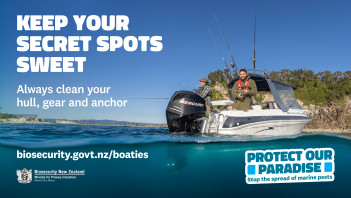
The Protect our Paradise campaign


